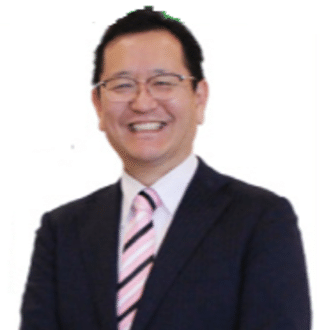
NATOはウクライナの影響で「非常に現実的な」武器不足に直面している/RT(ロシアトゥデイ)より
NATO faces ‘very real’ weapons shortage due to Ukraine – US envoy
NATOはウクライナの影響で「非常に現実的な」武器不足に直面している-米特使
Washington is working on persuading the Western military industry to increase production
ワシントンは欧米の軍需産業を説得し、増産に取り組む
Almost all NATO countries face depleted weapons and ammunition stockpiles due to the amount of armoury they’ve sent to Ukraine, US ambassador to the bloc Julianne Smith admitted on Tuesday. The US, NATO and the EU are all working on urging the Western military industry to ramp up production to deal with the shortfall.
ジュリアン・スミス駐日米国大使は火曜日、NATO諸国のほとんどが、ウクライナに送った大量の武器・弾薬の備蓄が枯渇していることを明らかにした。米国、NATO、EUはいずれも、不足分を補うために西側の軍需産業に生産を拡大するよう働きかけている。
Speaking at an event hosted by the CSIS think-tank, Smith used the example of Estonia, which has given a massive quantity of aid to Ukraine and is now facing “some very real shortfalls.”
CSISシンクタンク主催のイベントで、スミス氏は、ウクライナに大量の援助をしてきたエストニアを例に挙げ、「非常に現実的な不足 」に直面していることを指摘した。
“They are not alone. We see that across the alliance writ large,” the US permanent representative to NATO said.
「彼らは一人ではありません。同盟全体で大規模な令状が発令されていると、米国のNATO常任代表は語った。
While the “contact group” for Ukraine is focused on organizing deliveries to Kiev, NATO has tasked the Conference of National Armaments Directors (CNAD) to deal with the problem of “declining stockpiles across the alliance,” said Smith. Meanwhile, the EU has launched a separate initiative aimed at the military industry.
ウクライナ向けの「コンタクトグループ」がキエフへの納入を整理することに注力している一方で、NATOは国家軍備局長会議(CNAD)に「同盟全体で備蓄が減少している」という問題に対処するように命じた、とスミスは言う。一方、EUは軍需産業を対象とした別のイニシアチブを立ち上げた。
“Lots of flowers are blooming here,” Smith told CSIS, adding that the key is to find “connective tissue” so the EU, NATO, and the US work together and not at odds. From what Smith explained, all of these efforts are aimed at persuading the military industry in the West to expand production.
「ここではたくさんの花が咲いています」とスミス氏は CSIS に語り、鍵は「結合組織」を見つけることであり、EU、NATO、米国が対立するのではなく協力することだと付け加えた。スミスが説明したことから、これらの努力はすべて、西側の軍事産業に生産を拡大するよう説得することを目的としている。
The US and its allies have been funneling military aid to Ukraine since 2014, but ramped up deliveries of ammunition, small arms and heavy weapons – including tanks and artillery – in February, when the conflict with Russia escalated. Since then, Moscow has on multiple occasions warned Western nations against arming Kiev, arguing it can only prolong the ongoing conflict.
米国とその同盟国は2014年からウクライナに軍事援助を流してきたが、ロシアとの紛争が激化した2月に弾薬、小火器、戦車や大砲を含む重火器の納入を強化した。それ以来、モスクワは何度も西側諸国にキエフの武装化を警告し、進行中の紛争を長引かせるだけだとしている。
Initially the shipments were just surplus, but very soon Western governments began raiding their own military stockpiles, already “hollowed out” by years of focusing on expeditionary wars and counter-insurgency. In August, EU foreign policy commissar Josep Borrell described most Western European forces as “bonsai armies,” the “miniature versions” of the real ones.
当初は余剰物資の輸送だったが、すぐに西側諸国政府は、長年にわたる遠征戦争と対反乱戦に注力した結果、すでに「空洞化」していた自国の軍事備蓄をあさりはじめた。8月、EUの外交政策委員ジョセップ・ボレルは、西ヨーロッパの軍隊のほとんどを「盆栽軍隊」と呼び、実際の軍隊の「ミニチュア版」であると述べた。
By September, however, it was apparent that the Western cupboards were emptying. NATO Secretary General Jens Stoltenberg called for more production, as numerous experts pointed out that even the Pentagon stockpiles were not infinite.
しかし、9月になると、欧米諸国では兵器庫が空っぽになりつつあることが明らかになった。NATOのイェンス・ストルテンベルグ事務総長は、国防総省の備蓄も無限ではないことを多くの専門家が指摘する中、さらなる増産を呼びかけた。
Meanwhile, Russia has ramped up its own defense production, especially of tanks, missiles and artillery ammunition. “Don’t hold your breath” for Moscow to run out of weapons, deputy National Security Council chair Dmitry Medvedev told the West in October.
一方、ロシアは戦車、ミサイル、砲弾を中心に自国での防衛生産を強化している。メドベージェフ国家安全保障会議副議長は10月、西側諸国に対し、モスクワの兵器が枯渇しても「期待しない方がいい」と述べた。
いいなと思ったら応援しよう!

